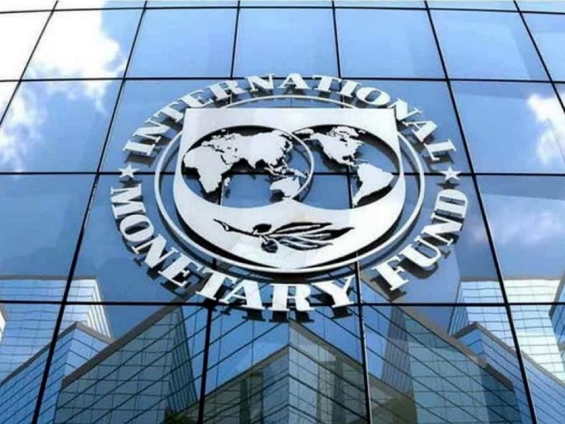The International Monetary Fund (IMF) has expressed worry the upcoming general elections in December 2024 could pose some possible risks to gains made under its programme with Ghana.
According to the IMF, “the medium-term outlook remains favourable but subject to downside risks—including those related to the upcoming general elections”.
It added that “keeping the domestic revenue mobilization agenda on track and tightening expenditure commitment controls is critical to avoid policy slippages ahead of the December 2024 general elections”.
This was captured in a statement issued by the IMF after its Board passed Ghana on the second programme review and approved the disbursement of $360 million for the country.
The IMF pointed out that it will be crucial for government to continue implementing the programme as envisaged, ensuring sustainable growth and poverty reduction.
It added that sustaining macroeconomic policy adjustment and reforms are essential to fully and durably restore macroeconomic stability and debt sustainability.
“These efforts should be supported by continued progress in improving tax administration, strengthening expenditure control and management of arrears, enhancing fiscal rules and institutions”, the IMF advised.
Ghana’s Performance under the IMF Programme
The IMF however stated that despite the elections related concerns, “Ghana’s performance under the programme has been generally strong, both in terms of meeting the quantitative objectives (for example on budgetary performance), and also in implementing structural reforms”.
The statement said the reforms are aimed at making the economy more resilient, ensure a lasting improvement in public finances, and lay the foundations for stronger and more inclusive growth.
“The authorities have so far demonstrated a strong commitment to the programme objectives, and we welcome Finance Minister Adam’s signaling of the government’s continued commitment to the policies under the programme”.
The Deputy Managing Director of the IMF, Gita Gopinath in statement praised government and the Bank of Ghana on decisive steps that have been taken to contain inflation and rebuild foreign reserve buffers.
She however stated that maintaining an appropriately tight monetary stance and enhancing exchange rate flexibility are important.
Does the IMF see signs of success under the Programme?
According to the IMF despite a difficult global economic environment, the Ghana’s reforms are bearing fruit, and signs of economic stabilization are emerging.
The IMF also identified that growth has proven more resilient than initially envisaged; while Inflation is declining rapidly from its 2022 highs.
It added that the fiscal and external positions have improved as Bank of Ghana’s international reserves have been increasing.
Debt Restructuring and the IMF Programme
The IMF applauded Ghana for providing the financing assurances necessary for the second review under the ECF Arrangement to be completed.
“The authorities have also recently reached an agreement in principle with representatives of Eurobond holders on a restructuring consistent with program parameters, subject to confirmation on comparability of treatment by the OCC”.
Background
On May 2023, Ghana secured a programme from the IMF to support Ghana’s Post- COVID Economic Programme
The fund programme had three objectives namely:
First, large and frontloaded measures to bring public finances back on a sustainable path. This is being done through mobilizing more domestic revenue and improving the efficiency of public spending. Importantly, the programme does – and will continue to – include efforts to protect the vulnerable.
Second, ambitious structural reforms are being implemented to support the fiscal adjustment and enhance resilience to shocks. They focus on tax policy, revenue administration, and public financial management. Reforms also aim at addressing weaknesses in the energy and cocoa sectors.
Third, steps are being taken to bring inflation under control – for example, with the Bank of Ghana raising interest rates and eliminating monetary financing of the budget. A flexible exchange rate policy will help rebuild international reserves.
These efforts should be supported by continued progress in improving tax administration, strengthening expenditure control and management of arrears, enhancing fiscal rules and institutions, and improving SOEs management. Bolstering targeted social protection programs is needed to cushion the vulnerable from the impact of fiscal adjustment
Latest Stories
-
Bayer Leverkusen’s Jeremie Frimpong arrives in Ghana for visit
7 minutes -
‘It will be disastrous if Mahama removes the Chief Justice’ – Prof. Stephen Adei
9 minutes -
Jean Mensa must step down as EC Chair – APC and Movement for Change assert
28 minutes -
Akufo-Addo calls on police to refine strategies to avoid prolonged electoral unrest
32 minutes -
Only NPP looting brigade unhappy about ORAL – Ablakwa
34 minutes -
CSIR-SARI introduces integrated soil fertility management technology to boost maize production
35 minutes -
Ghana’s indigenous agribusiness faces challenges impacting economic growth – Dr. Azinu
37 minutes -
41-year-old man arrested over illegal power connection
39 minutes -
65-year-old man plans to walk over 250-km Kumasi-Accra journey for Mahama’s swearing-in
40 minutes -
Woman dies after being set on fire on NYC subway
2 hours -
Elon Musk’s curious fixation with Britain
2 hours -
EBID wins the Africa Sustainability Award
4 hours -
Expansion Drive: Takoradi Technical University increases faculties
9 hours -
SHS heads demand payment of outstanding funds before reopening of schools
9 hours -
We thank God for the 2024 general elections – Akufo-Addo
9 hours

